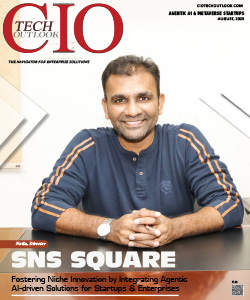IDC Energy Insights Evaluates Customer Experience Management Solutions for the Worldwide Utilities Industry
CIOReview Team | Wednesday, 25 May 2016, 09:50 IST
 IDC Energy Insights announced today the availability of a new report that evaluates providers of customer experience management (CXM) software to the utilities industry across the world by applying the IDC MarketScape vendor assessment tool. In the new study, IDC MarketScape: Worldwide Customer Experience Management Solutions for Utilities 2016 Vendor Assessment (Doc #US40130216), IDC Energy Insights analyzes the current capabilities of CXM software vendors, their focus and comparative success in the industry, in addition to assessing how their products and services may advance in this particular solution area. Vendors assessed in this report include: Ferranti Computer Systems, Gentrack, Hansen Technologies, Junifer Systems, Oracle, SAP, and Tieto.
IDC Energy Insights announced today the availability of a new report that evaluates providers of customer experience management (CXM) software to the utilities industry across the world by applying the IDC MarketScape vendor assessment tool. In the new study, IDC MarketScape: Worldwide Customer Experience Management Solutions for Utilities 2016 Vendor Assessment (Doc #US40130216), IDC Energy Insights analyzes the current capabilities of CXM software vendors, their focus and comparative success in the industry, in addition to assessing how their products and services may advance in this particular solution area. Vendors assessed in this report include: Ferranti Computer Systems, Gentrack, Hansen Technologies, Junifer Systems, Oracle, SAP, and Tieto.
"For utilities, offering a digital omni-experience is both a critical source of new customers and a way to reduce the cost to acquire, serve, and retain them. Ultimately, it is a pillar of digital transformation as utilities gradually adapt to customer expectations that are set in more digitally mature industries," said Jean-François Segalotto, Senior Research Analyst EMEA, IDC Energy Insights. "Vendors are responding by embedding increasingly rich customer engagement functionality in utility business systems and ensuring their customer experience management solutions meet industry-specific processes."
The new IDC MarketScape offers support for utility end users guiding them in their experience enhancement projects or as they plan for an end-to-end CXM solution deployment. The following are some of the key recommendations from IDC Energy Insights:
- Go digital first. Utilities should seize the opportunity of any major transition in their CXM landscape to support their transformation from commodity suppliers to digital energy services providers. While doing so, they should strive to reorganize their processes around the digital customer, rather than just move the existing processes to digital channels.
- Fix the basics and then enhance the customer experience. Utilities should analyze the expectations of their customers to identify major experience gaps and focus on the most immediate needs. Once the basics are fixed, they can modulate their CXM effort as their digital maturity grows and business model evolves, leveraging solutions that are increasingly open, integrated, and flexible.
- Consolidate at the heart of the omni-channel strategy. Utilities should move away from building and integrating a new system for every go-to-market channel. Rather, they should work toward an integrated platform enabling an omni-channel approach.
- Complement your CXM approach. Utility companies should seek the help of user experience and customer engagement specialists to encapsulate their CXM solution in a simple, intuitive interface and deliver relevant individualized content, at the right moment, through the best channel.
- Consider cloud. CXM vendors display varying degrees of hosting capability, from traditional datacenter hosting to "everything as a service" offerings on cloud. All have a cloud offer; in fact, cloud is the preferred delivery option for standalone self-service, sales, marketing (including social media marketing), and digital commerce applications. This will effectively democratize modern digital customer experience functionality to utilities of all sizes.
- Vet your shortlisted candidates. Leverage referral customers to evaluate prospective vendors' innovation and delivery quality — the two dimensions where vendors were rated the poorest in customer review. Scrutinize products' functionality and road maps, particularly around advanced relationship management, self-service, support for social business, analytics, and cloud. At the same time, strive to gain visibility into a vendor's recent delivery track record and clarity around how it plans to implement critical features.
IDC MarketScape criteria selection, weightings, and vendor scores represent well-researched IDC judgment about the market and specific vendors. IDC analysts tailor the range of standard characteristics by which vendors are measured through structured discussions, surveys, and interviews with market leaders, participants and end users. Market weightings are based on user interviews, buyer surveys and the input of a review board of IDC experts in each market. IDC analysts base individual vendor scores, and ultimately vendor positions within the IDC MarketScape, on detailed surveys and interviews with the vendors, publicly available information and end-user experiences in an effort to provide an accurate and consistent assessment of each vendor's characteristics, behavior, and capability.



.jpg)
